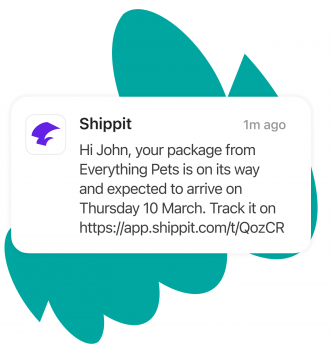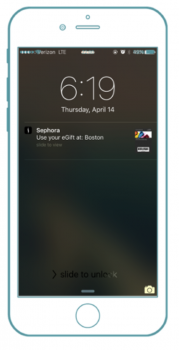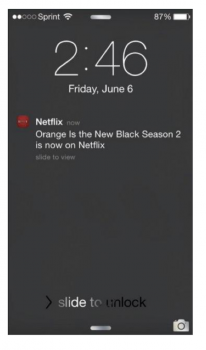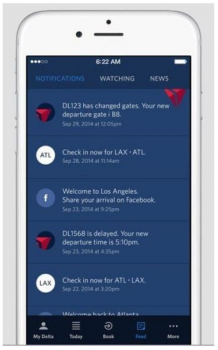Push notifications and why we love them
Generally speaking, the word ‘push’ isn’t synonymous with great customer experience. Whether we’re talking about a pushy salesperson or someone rudely pushing in, the word ‘push’ and retail aren’t a great combination. When it comes to eCommerce, push means something entirely different, and it’s something that can help build engagement and drive revenue.
No, we’re not talking about literally pushing anything or anyone, we’re talking about push notifications. A simple, yet effective channel to engage with your customers.
What is a Push Notification
A push notification is a small message that pops up on a users mobile device; anywhere and anytime. If you’re an UberEats or Deliveroo user, you’ll be familiar with push notifications; they look like text messages and mobile alerts. Once you’ve placed your order through the app, you’ll likely receive a message letting you know the status of your order: those messages are push notifications.
To receive a push notification, you don’t have to be using the app, but you do need to have the app installed.
Sure, if you’re business is Uber or an Asos-sized, an app is a no-brainer. But for smaller online retailers who don’t have Asos-sized budgets, web push notifications mean brands without apps can still leverage the power of push notifications.
Web push notifications work similarly to app push notifications, but the messages are being pushed via desktop and mobile browsers. As a simplified example – if you use an email platform like Airmail or Outlook, every time you receive an email, you’ll be pushed a notification. ECommerce brands can use push notifications to deliver a notification via a web browser, even though the user isn’t on their website.
Why We Use Them
From breaking news to order updates, push notifications can do a lot of things and provide a lot of value for both sender and receiver. For example – send utility messages like traffic or weather reports or send convenience-based notifications such as flight check-in information. From a retailers perspective, send out coupons or notifications to let users know about events or flash sales.
Because the user is receiving a direct notification on their phone or browser, the brand essentially has a direct line to the customer. And because there’s no chance these messages could get trapped in a spam or junk filter, their conversion rates are considerably higher than email marketing.
While a very useful sales tool, push notifications are ultimately about convenience and adding value to the customer experience by sending useful messages at the right time.
Brands Setting the Benchmark
From an online retail perspective, it’s getting more difficult and expensive to acquire and retain customers. Push notifications can be an effective tool to drive loyalty and engagement. Here’s a couple of brands which are setting the benchmark in push notifications.
Sephora
Mobile plays a crucial role in Sephora’s digital strategy, and with over 800,000 Facebook fans, it’s easy to see why. With mobile bridging the gap between physical and virtual experiences, Sephora uses push notifications to drive a personalisation strategy; sending users messages, updates and notifications at the right time. With a large bricks-and-mortar presence, Sephora is also using the platform to drive consumers into nearby stores.
Netflix
With access to so much user data, Netflix is using push notifications to deliver personalised suggestions, and reminders, based on shows users have previously watched. This is proving to be a highly effective way to drive conversions and engagement.
Travel Companies
When it comes to push notifications, Delta Airlines has a winning customer experience strategy. Yes, there are standard notifications about upcoming flight details and departure times. Then there are go-the-extra-mile notifications like letting passengers know which carousel their bags can be collected from, and an easy way to share their arrival details via social media.
Hotels are also using push notifications to drip through local information such as restaurant recommendations, things to do, local events, offers and upgrade incentives.
Shipping and Order Notifications
Online retailers using a smart shipping platform can use push notifications to provide transparent tracking from order placement to delivery confirmation. With shipping playing a make-or-break role in eCommerce customer experience, keeping users in the loop not only reduces admin but also gives your customers a seamless brand experience.
Using smart email and SMS notifications give your customers the right amount at the right time. This means less time chasing parcels and ultimately greater customer engagement.




